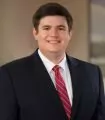On June 30, the United States Supreme Court agreed to hear a long-awaited challenge to the practice of allowing unions to collect fees from public sector employees who do not wish to be union members. In the more than 20 states that allow these compulsory "agency fees," public sector unions receive the financial support of all employees for their collective bargaining efforts, regardless of whether employees agree with the union's objectives or methods. The Court's decision on the question of whether these fees are constitutional will have significant implications for the free association rights of hundreds of thousands of public employees as well as the lobbying strength of the public sector unions nationwide.
The plaintiffs in Friedrichs v. California Teachers Association, 10 California public school teachers, argue that by allowing the union to compel their payment of agency fees, the state has impinged on their First Amendment rights by forcing them to subsidize the speech of a group with which they do not agree.1 While agency fee payers theoretically only pay for costs directly related to a union's collective bargaining activities, the Friedrichs plaintiffs argue that there is no meaningful difference between collective bargaining and lobbying by a public sector union, as both activities entail an attempt to influence government decision making with regard to matters of public policy.2 As the Court itself observed in Abood v. Detroit Board of Education, the 1977 decision allowing unions to collect agency fees from public employees, direct lobbying of public officials away from the bargaining table may often constitute bargaining-related activity for which the union may charge non-members.3 Should the Court be unwilling to invalidate public sector agency fees altogether, the plaintiffs have alternatively asked the Court to minimize the burden on non-member public employees by requiring employees to affirmatively consent to supporting unions' non-chargeable political activities rather than permitting unions to collect these fees until employees "opt out" of subsidizing those activities.4
The Friedrichs challenge comes at a time when the Court has indicated that it may be ready to reverse its decision in Abood. In that case, the Court recognized that compelling employees to financially support a union affects First Amendment interests,5 but it held that the justifications for agency fees—the risk of "free-riders" and the desirability of labor peace—justified the impingement on employees' First Amendment interests.6 In a 2012 case, Justice Samuel Alito questioned this reasoning in an opinion joined by a majority of the Court, observing that free-rider arguments are "generally insufficient to overcome First Amendment objections."7 Last year, Justice Alito, again writing for the majority, took more direct aim at Abood, criticizing the Abood Court for failing to "appreciate the conceptual difficulty of distinguishing in public sector cases between union expenditures that are made for collective bargaining purposes and those that are made to achieve political ends."8 Alito noted that in the public sector, core bargaining issues, such as wages and benefits, are "important political issues,"9 essentially rendering a union's collective bargaining efforts another form of lobbying.
If the Court follows this reasoning and invalidates agency fee provisions for public employees, the decision will have dramatic implications for public employees, public sector unions, and the general public. Most immediately, such a decision would restore the free association rights of hundreds of thousands of public employees who choose not to be union members yet must support union speech through agency fees. For instance, more than 90,000 teachers pay agency fees to the National Education Association, the parent organization of the defendant union in Friedrichs.10 Current fee payers immediately released from the burden of subsidizing union speech may be joined by significant numbers of public employees who may have remained union members to this point given the often very slight difference in the cost of union dues versus agency fees. Such a loss in revenue could pose a threat to public sector unions, which enjoy a unionization rate more than five times higher than that of private sector employees, and spend millions annually on lobbying and political campaigns.11
Given Friedrichs' implications, both union and employer organizations have closely followed the case as it has rapidly moved through the trial and appellate courts. The Center for Individual Rights, the organization representing the Friedrichs plaintiffs, asked the lower courts to decide against the plaintiffs on the grounds that the constitutional questions in the case entail overturning existing Supreme Court precedent. With certiorari now granted, the Court will hear the parties' arguments in the fall of 2015 and will likely issue a decision by June 30, 2016.
Footnotes
1 Petition for Writ of Certiorari at 10–11, Friedrichs v. Cal. Teachers Ass'n., No. 14-915 (U.S. Jan. 26, 2015).
2 Id. at 14.
3 431 U.S. 209, 236–37 (1977).
4 Petition for Writ of Certiorari at 34, Friedrichs, No. 14-915.
5 Abood, 431 U.S. at 223.
6 Id. at 225.
7 Knox v. Serv. Emp. Int'l. Union, Local 1000, 132 S. Ct. 2277, 2289 (2012).
8 Harris v. Quinn, 134 S. Ct. 2618, 2632 (2014).
9 Id.
10 U.S. Dept. of Labor, LM-2 Labor Organization Annual Report, File No. 000-342 (Nov. 21, 2014).
11 Press Release, Bureau of Labor Statistics, Union Members Summary (Jan. 23, 2015).
The content of this article is intended to provide a general guide to the subject matter. Specialist advice should be sought about your specific circumstances.
